RESEARCH TOPICS
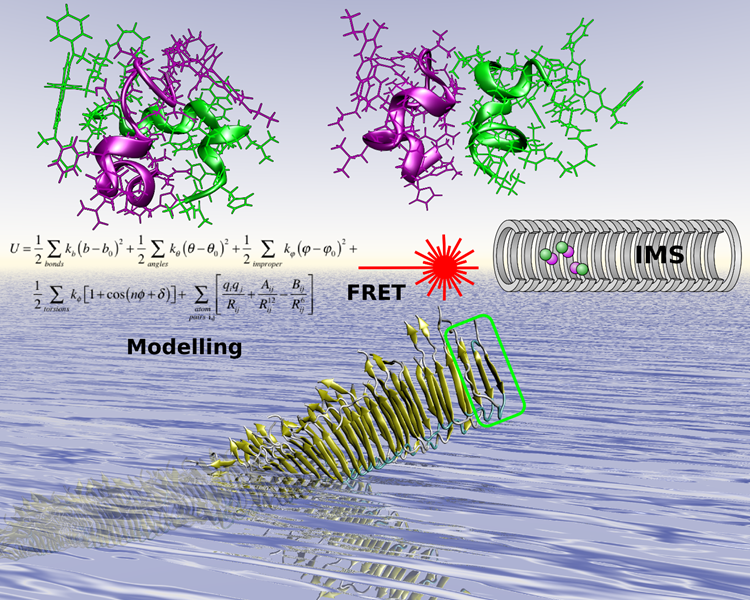
Gas Phase Structural Biology and Structural Dynamics
Mass Spectrometry and Ion Mobility Spectrometry are combined with Optical Spectroscopy to gain deep insight in the structural properties of complex molecular systems, such as biomolecules. In the frame of Native Mass Spectrometry, we recently proposed an original method to measure Förster Resonance Energy Transfer (action-FRET), which complements structural information from Ion Mobility. We currently focus on the development of tandem-Ion Mobility and pump-probe Spectroscopy strategies to characterize the dynamics and the thermodynamics of (photo-)isomerization processes.
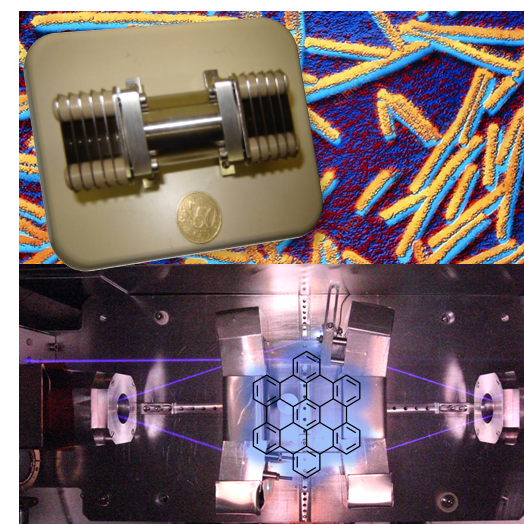
Electrostatic Devices: Instrumentation for Extreme Measurements
The Mini-Ring is a compact electrostatic ion storage ring designed for molecular relaxation dynamics studies. In order to accomplish an injection of the incoming ion beam, the electrode voltage settings appear to be quite critical to avoid large betatron oscillations. Thanks to its ability to store ions up to a duration of the order of a millisecond, the mini-ring makes it possible to highlight processes of internal energy relaxation at long times, in particular oligomers of polycyclic aromatic hydrocarbons (PAHs). Charge detection devices are used to weight and manipulate single particles in the MegaDalton mass range. Applications concern protein fibrils, colloids, polymers nanoparticles and hybrid nanoparticles in the megadalton to gigadalton mass range. The measurement of photo-fragmentation of single particles provides information on the conformation of bio-macropolymers and on self-assembly mechanisms.
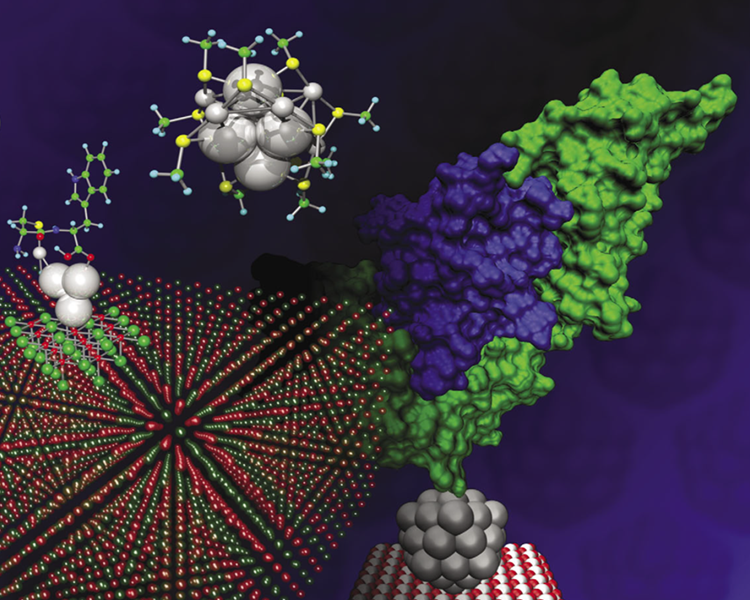
Functional Nanohybrids for Catalysis and Biological Applications
The development of functional nanohybrids is an important part of our activities. Such nanohybrids are used as optical probes in the context of the detection of protein oxidation in the context of biological aging (as part of a collaborative project involving the STIM-REI Centre of Excellence and MEDILs in Split, Croatia). A second aspect of the application of nanoclusters concerns catalysis. This activity was particularly developed with Prof. Richard O'Hair of the University of Melbourne, a world-renowned specialist in organo-metallic and radical chemistry, and mass spectrometry exploration of the kinetics of these reactions. This theme is conducted in close collaboration with the Institute for Chemical Sciences of Rennes of photo-catalysis processes involving aggregates of liganded transition metals. The objective of this activity is, through the study of catalytic cycles in a controlled environment, to characterise precursors, to determine reaction intermediates, identify key parameters affecting cycle efficiency and thus develop new catalysts for CO2 reduction or H2 generation.
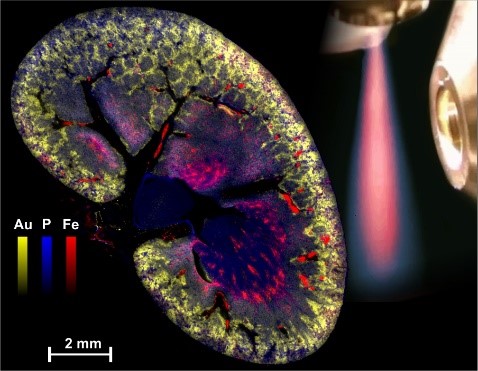
LIBS for Material and Biological Tissue Imaging
Laser-induced Breakdown Spectroscopy (LIBS) imaging allows a basic mapping of heterogeneous samples and is applied to various fields (biomedical, catalysis, geology, etc.). These studies are based on strong industrial and academic collaborations that provide access to sample cohorts, such as catalysts (IFPEN), minerals (GeoRessources, Nancy), caving (LSCE) and high-quality animal and human biopsies. They provide answers to questions such as the effectiveness of catalytic processes for refining, medical diagnostic support for pathologies involving metals, toxicology and tumor targeting of new drugs based on nanoparticles, or chemical characterization in geology (strategic resources, palaeoclimate) and archaeology.
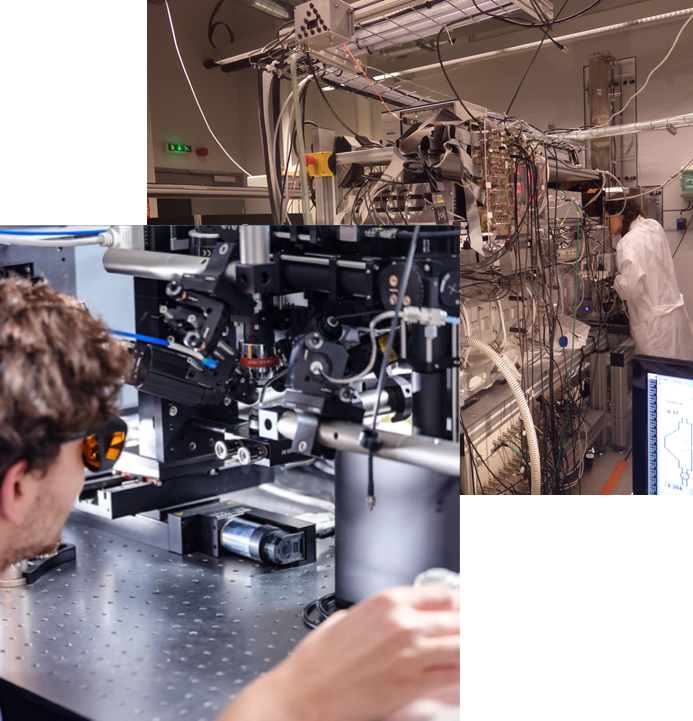
Mass Spectrometry and Optical Developments
Coupling of lasers with mass spectrometers (linear ion traps, orbitrap, triple quadrupoles, electrostatic devices) and ion mobility. Development of ionization sources for mass spectrometry. Pushing the limits of the Laser-Induced Breakdown Spectroscopy (LIBS) elemental imaging technique. Coupling of LIBS with MS imaging (in development).
Spectrobio is also strongly involved in the activities of iLMTech offering mass spectrometry and optical characterization tools and methods. Spectrobio is also part of the Interdisciplinary Center in Mass Spectrometry at Lyon (CISMALY@ILMTECH), an open platform for research, service, consulting and training in mass spectrometry.

















